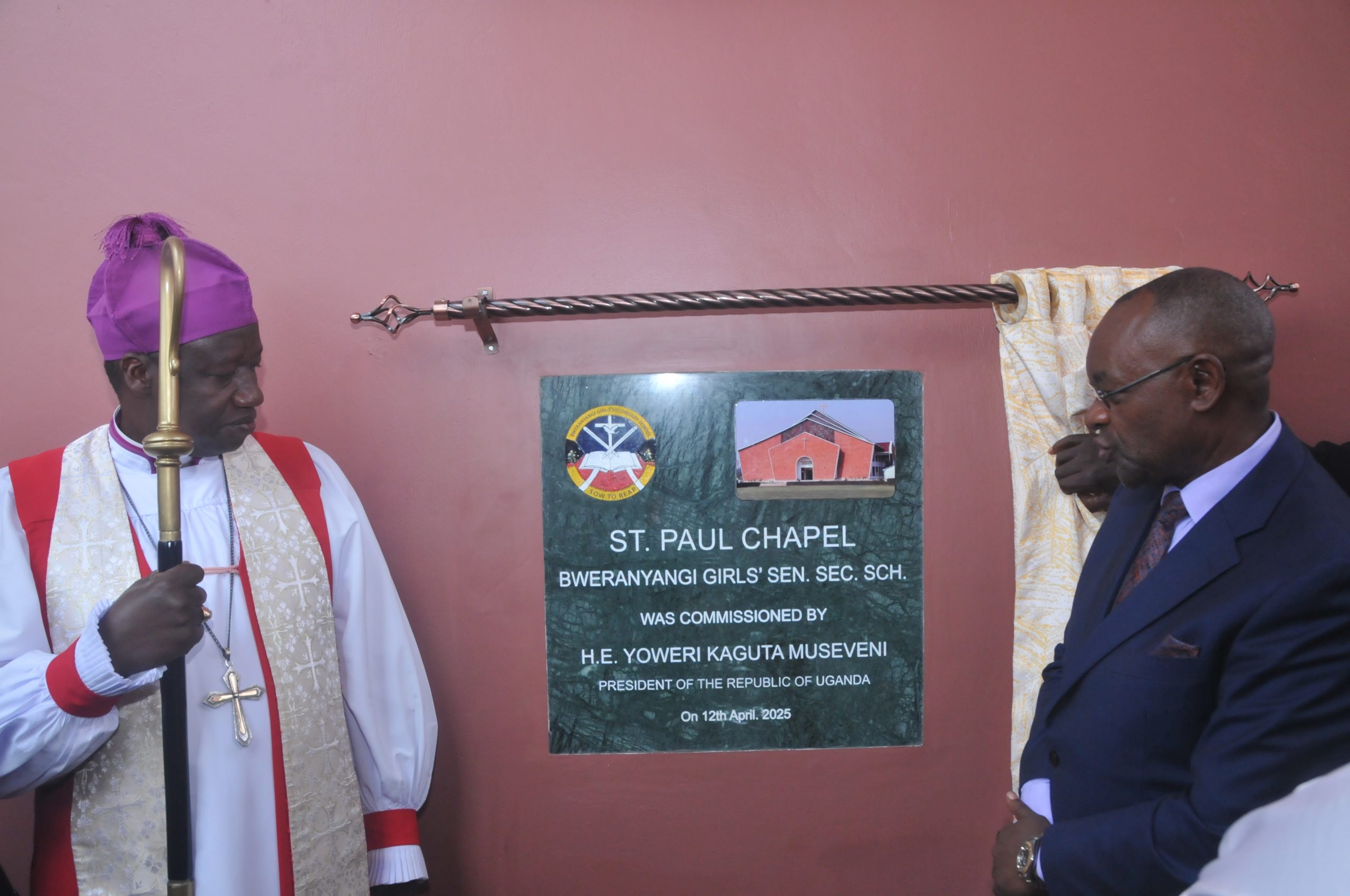By Chris Mugasha
The reforms that were recently introduced in the Lower secondary school curriculum where a new curriculum was developed will not be rolled out to A’ level, authorities in the education sector have announced.
As a result, the first cohort of the new curriculum (students who are finishing senior four this year) will have to switch to the old curriculum effectively next year when they join A ‘level.
Speaking during a Parents Teachers Association (PTA) annual general meeting on Saturday at Ntare school in Mbarara town, Mbarara city, the Ntare school head teacher Saul Rwampororo disclosed that they have already received the communication from the government concerning the matter.
“As you are aware the New culliculum will not be introduced in S.5 next year. And this curriculum is largely international in nature,” Rwampororo broke the news to parents.
Rwampororo said, “We are making studies in view to understand more about international schools like Cambridge curriculum.” “If we can manage it as Ntare, there will be some chances,” he added.
He explained, “We may introduce an international wing for S.5s if we find it helpful and we can manage it.”

The disclosure by Rwampororo who is the head teacher of one of the giant schools in the country did not go well with parents with some parents expressing their disappointment and questioning government’s lack of consistency.
The parents described the new curriculum as good and promising unlike the old curriculum. “We had started to see the results of the new curriculum in our homes. What should we anticipate in this situation where a student is going to switch from new curriculum to the old curriculum,” one parent responded.
The Ntare school PTA chairman Nathan Mugume said, “The issue of new curriculum is not within our control. Let us leave matters of ‘Generals to the generals’”.
According to sources, government has decided to halt the roll out of the new curriculum across all levels because of lack of preparedness, lack of enough materials like books and lack of trainings for teachers to implement the new curriculum.
This decision by government has left head teachers/schools stuck and stranded on the way forward. “We are fumbling because this is going to cause a lot of confusion in schools,” a head teacher who preferred anonymity said.
Ministry of Education and sports speaks out
The Ministry of education and sports spokesperson Dr. Mugimba Denis explained that government started with the formulation of the lower secondary explaining for A’ level its being developed. “For A’ level, it’s purely a different curriculum,” he explained.
Mugimba said, “It will take few years to be developed before it can be implemented.”
Mugimba explained that, “We want to consolidate resources to stabilize the lower secondary school curriculum.” He said the new curriculum was introduced at the time when COVID-19 was ravaging the World including Uganda stressing that, “We want to catch up with all the gaps before we can move to A’level.”

Caption: The new lower secondary school curriculum changed a number of things in schools including the sitting arrangement with students learning in groups.
Ntare parents commend government.
At the meeting, the parents and the school’s management committees commended government for extending a hand to the school especially funding the construction of the storeyed dormitory. Rwampororo said government has already released about Sh1.4billion which is meant to complete the final phase. “We shall occupy the dormitory by term III,” he pledged. The head teacher further said the school embarked on the construction of the perimeter wall to strengthen security and safety.
Quick facts about Uganda’s new secondary school curriculum.
Uganda’s new secondary school curriculum aims to prepare students for the 21st century by emphasizing skills such as;
– Critical thinking: The curriculum seeks to promote critical thinking skills, which are essential for success in the modern world.
– Communication: The curriculum aims to improve communication skills, which are vital for teamwork, tolerance, and academic success.
– Cooperation: The curriculum encourages cooperation and self-directing learning, which are crucial for achieving success in the modern world.
– ICT proficiency: The curriculum recognizes the importance of ICT proficiency in today’s technology-driven world.
– Interconnectedness: The curriculum aims to help students appreciate the connection between subjects and the complexities of life, such as environmental issues, health awareness, and life skills.
Key changes in the new curriculum include:
– Reduced subjects: Students will study only 12 subjects in Senior One and Two, with 11 compulsory subjects and one elective.
– Compulsory subjects: The compulsory subjects include English, Mathematics, History, Geography, Physics, Biology, Chemistry, Physical Education, Religious Education, Entrepreneurship, and Kiswahili.
-Elective subjects: Students can choose from a range of elective subjects, including Agriculture, ICT, Literature in English, Art and Design, Performing Arts, Technology and Design, Nutrition and Food Technology, and Foreign Languages.
– Continuous assessment: The curriculum introduces continuous assessment, which will account for 20% of the final grade.
– Competency-based: The curriculum is competency-based, focusing on the acquisition of skills and knowledge rather than mere passing of exams. End.















